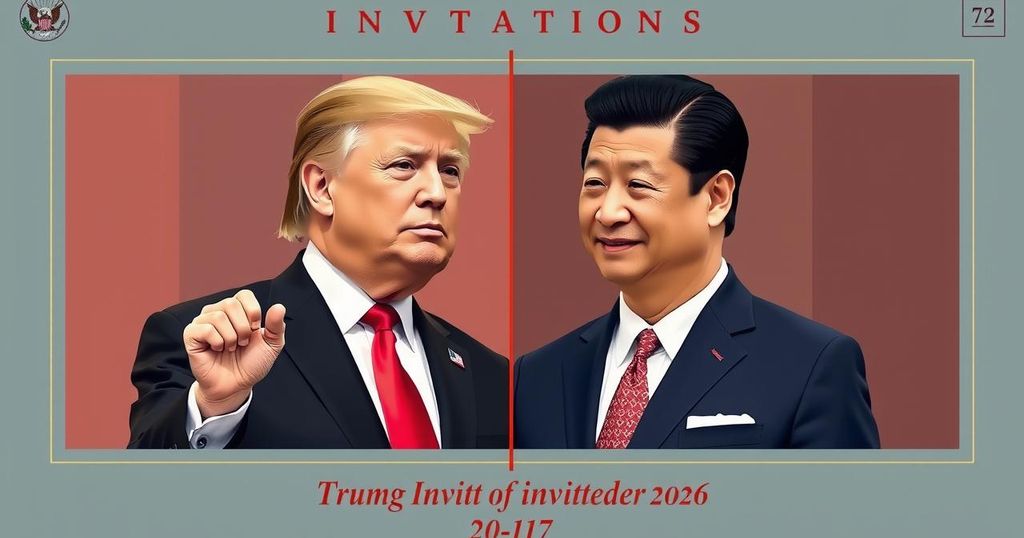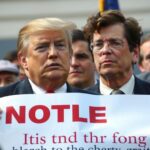Trump’s Invitation to Xi Jinping: A Diplomatic Gamble with Global Implications
Donald Trump’s invitation to Xi Jinping for his inauguration was a significant diplomatic gesture that highlighted the complexities and tensions in U.S.-China relations. Xi’s eventual decision to decline the invitation underscores the delicate nature of these international dynamics, where Trump’s unpredictable foreign policy may yield both risks and opportunities. The newly formed hawkish foreign policy team signals a potentially tougher approach towards China, amidst ongoing economic and territorial disputes.
On January 20, amidst the inauguration ceremony held at the U.S. Capitol, the absence of Xi Jinping highlighted the complexities in U.S.-China relations under the impending Trump administration. While President Trump extended an invitation to Xi, the Chinese leader’s nonattendance underscored the political improbability of such a visit, as it would be seen as a compromise to his authority and a capitulation to U.S. dominance. Trump’s invitation reflects his assertive foreign policy approach, characterized by grand gestures and talks of personal diplomacy, despite a newly formed hawkish foreign policy team prepared to handle adversarial relations with China.
The gesture was symbolic, aiming to disrupt the traditionally antagonistic tone of the U.S.-China relationship without undermining American strategic interests. Amid a backdrop of increasing tensions over Taiwan and cyber espionage accusations, Trump’s approach may be perceived as an attempt to draw Xi into a cooperative stance while maintaining a tough outlook on China’s economic practices. Critics within the foreign policy establishment question whether Trump’s unpredictable methods can yield beneficial outcomes or simply reinforce existing divides.
Additionally, the invitation’s reception in Beijing signifies the necessity for China to prepare strategies in anticipation of Trump’s second term, which may include retaliatory measures amidst a potential trade conflict. The duality of Trump’s policy—being tough on China while still seeking camaraderie with its leader—reveals an underlying conflict in his diplomatic overtures. Whether these dynamics will lead to improved relations or escalate conflicts remains uncertain, but they will play a significant role in shaping international diplomacy in the years to come.
The invitation extended by Donald Trump to Chinese President Xi Jinping for his second inauguration serves as a focal point for analyzing U.S.-China relations under the incoming administration. Historically, these relations have been characterized by tension over various strategic issues, including trade, national security, and territorial disputes, particularly concerning Taiwan. Trump’s presidency has notably oscillated between assertiveness and attempts at personal diplomacy, raising questions about the coherence of U.S. policy towards China moving forward. A hawkish foreign policy team appointed by Trump further complicates the narrative, suggesting a potential shift towards more adversarial tactics.
In conclusion, the invitation to Xi Jinping highlights Donald Trump’s contrasting approach to foreign policy—balancing between confrontation and diplomatic overtures. While the invitation was ultimately rejected, it reflects Trump’s confidence and willingness to engage in unexpected moves in pursuit of strategic advantages. The ensuing challenges for U.S.-China relations in the wake of this gesture will likely set the tone for future diplomatic engagements and international stability.
Original Source: edition.cnn.com








Post Comment